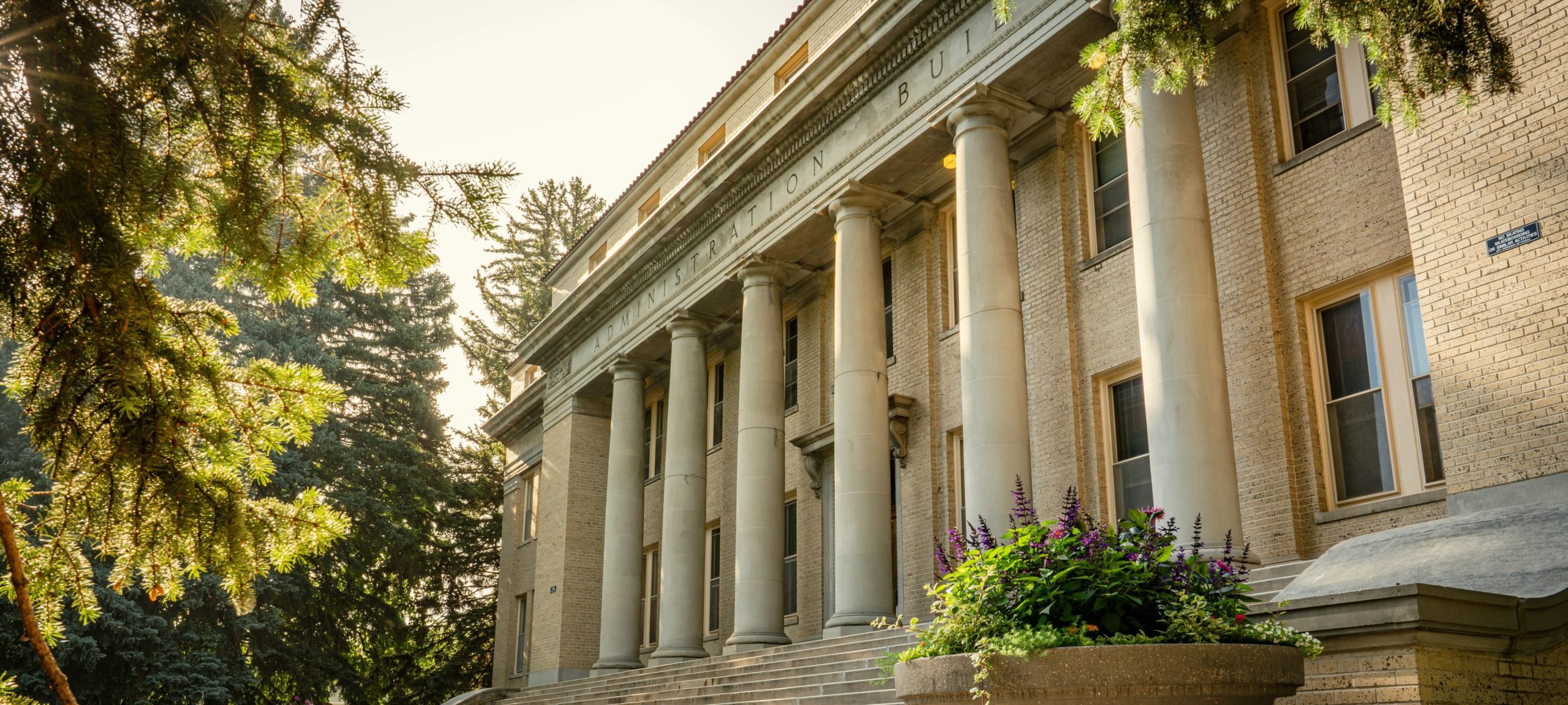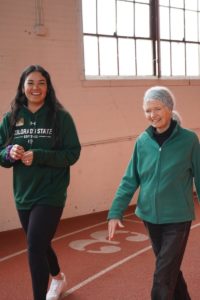Colorado State University recognized as an Age-Friendly University

In July 2021, Colorado State University was the first higher education institution in Colorado to be named an Age-Friendly University by the AFU Global Network, an international group of colleges and universities committed to understanding and fulfilling the needs of older adults in higher education. Earlier in the year, CSU underwent a gap analysis of its programs, policies, and practices involving older adults to identify strengths and weaknesses regarding age friendliness and inclusivity. Researchers from the University of Massachusetts and Lasell University provided the framework for the analysis and later reported that CSU had an overall age friendliness score of 73% in 2021. Following the AFU designation, the Center has taken on a leading role in spearheading CSU’s initiatives to broaden educational possibilities for older adults, foster intergenerational learning, and develop a research agenda focused on aging-related issues.
Age-Friendly Strengths at CSU
The 2021 campus report indicated that the university has taken strides toward enacting age-friendly programs and practices broadly across campus units, including:
- Offering an interdisciplinary, undergraduate minor in gerontology through the Department of Human Development and Family Studies.
- Providing financial aid opportunities and orientation programming specifically for returning or nontraditional-age learners.
- Maintaining ADA standards for buildings.
- Running campus-sponsored events to honor long-standing faculty and staff.

- Offering a lifelong learning program for older adults.
- Supporting the learning and use of instructional technologies.
- Disseminating aging-related research through campus publications and colloquia.
- Offering service-learning courses involving older people in the community.
- Hosting pre-retirement planning and wellness workshops through Human Resources.
Age-Friendly Programs at CSU
CSU has many aging-related programs that played a role in securing our AFU designation. These include, but certainly aren’t limited to:
Areas for Improvement
To increase age-friendliness across campus, researchers on the study suggested that CSU focus on these areas:
- Increase awareness of age-friendly practices and research already in place.
- Increase support for intergenerational interactions.
- Organize an age-inclusivity task force by recruiting members of all ages across a variety of campus units to devise a strategic plan for maintaining age-friendly practices.
- Support faculty development for designing courses and materials to support the needs of age-diverse learners.
The 10 Age-Friendly University Principles, endorsed by the Academy for Gerontology in Higher Education:
- To encourage the participation of older adults in all the core activities of the university, including educational and research programs.
- To promote personal and career development in the second half of life and to support those who wish to pursue second careers.
- To recognize the range of educational needs of older adults (from those who were early school-leavers through to those who wish to pursue Master’s or PhD qualifications).
- To promote intergenerational learning to facilitate the reciprocal sharing of expertise between learners of all ages.
- To widen access to online educational opportunities for older adults to ensure a diversity of routes to participation.
- To ensure that the university’s research agenda is informed by the needs of an aging society and to promote public discourse on how higher education can better respond to the varied interests and needs of older adults.
- To increase the understanding of students of the longevity dividend and the increasing complexity and richness that aging brings to our society.
- To enhance access for older adults to the university’s range of health and wellness programs and its arts and cultural activities.
- To engage actively with the university’s own retired community.
- To ensure regular dialogue with organizations representing the interests of the aging population.



